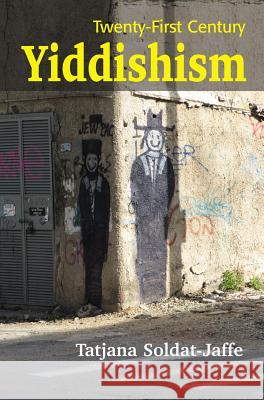Twenty-First Century Yiddishism : Language, Identity & the New Jewish Studies » książka
Twenty-First Century Yiddishism : Language, Identity & the New Jewish Studies
ISBN-13: 9781845194062 / Angielski / Twarda / 2012 / 178 str.
Drawing on sociolinguistics and cultural studies, Twenty-First Century Yiddishism examines transnational critical debates about teaching Yiddish over the last hundred years. It looks at the ways a contested pedagogical terrain comes to define a minority language s on-going resources of cultural and ideological resilience. From the inaugural international academic conference on the language held in 1908 in the Austro-Hungarian empire to the rise of Yiddish home-schooling and the surge of interest as a subject of secondary language study in recent years, the status, turf-sharing conflicts and pedagogical frictions surrounding the shuttling of Yiddish back-and-forth reveal a fraught yet surprisingly dynamic situation. Through historical and comparative analysis including archival work, surveys, interviews, close textual reading, discourse analysis, and ideological critique the author reports on three critical case-studies for the language s futurity: ultra-orthodox Jewry in the UK, heritage learners in the US, and multi-cultural non-Jewish learners in Germany. The volume addresses several timely preoccupations in the fields of both Jewish Studies and Linguistics, pulling together multiple strands from the humanities and the social sciences concerning the evolving politics of language, pedagogy, transnationalism and diaspora, the meaning of heritage languages, and religious and ethnic identity in the modern era. Twenty-First Century Yiddishism will be of keen interest to all who study these disciplines academically, as well as other readers in literary and cultural studies, literary and cultural theory, anthropology, and history."











